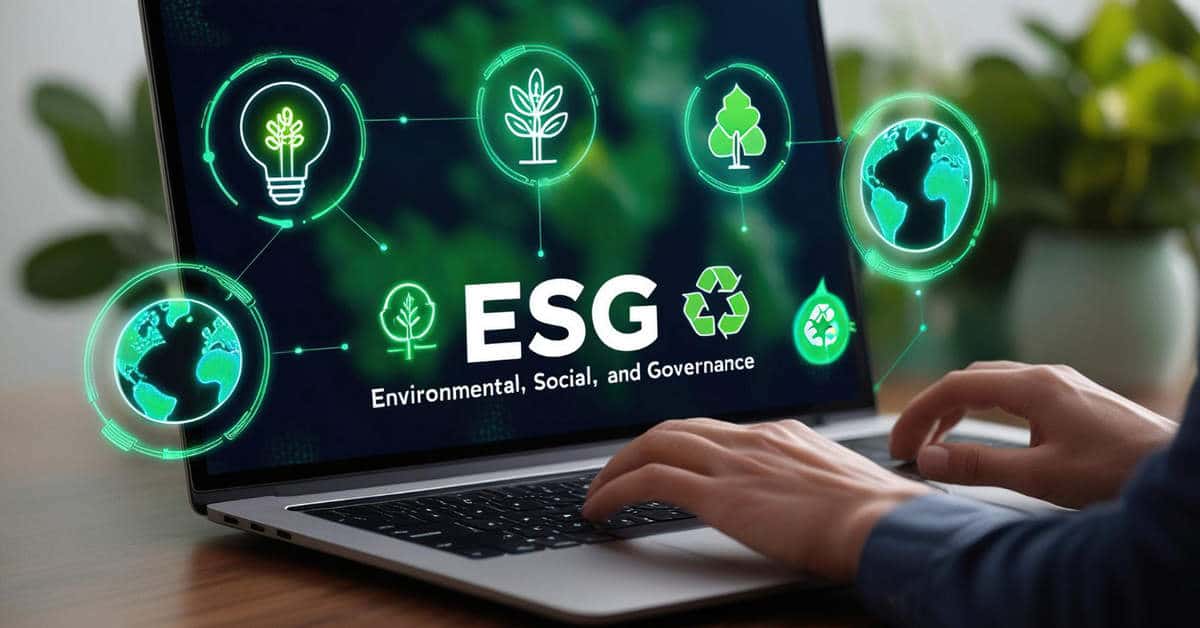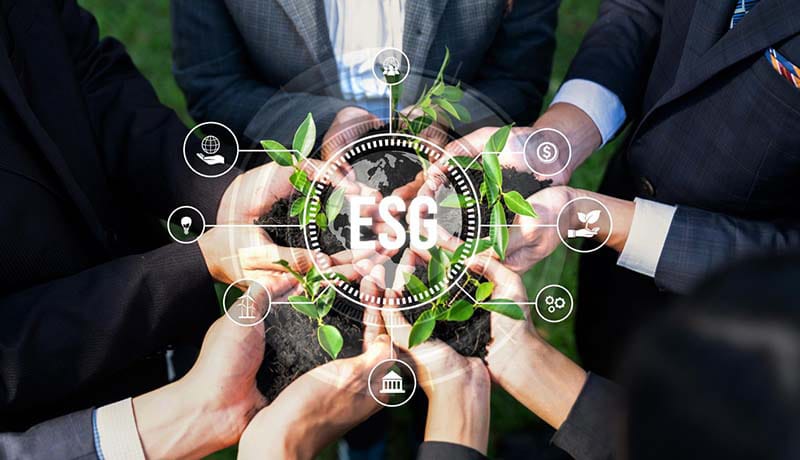Bridging the Sustainability Skills Gap: Practical EcoVadis Guide for SMEs

Bridging the Sustainability Skills Gap: Practical EcoVadis Guide for SMEs
Equipping SMEs to stay competitive, credible, and future-ready by empowering them with the required sustainability skills.
- Last Updated
The environment that surrounds sustainability for Small and Medium Enterprises has now changed significantly. What used to seem like a far-off worry has now become an urgent commercial and economic reality. Investor confidence, market positioning, and contract opportunities can now directly be impacted by EcoVadis ratings. However, SMEs continue to face the required skill gap. They recognise the need to increase their ESG compliance but lack clear guidance on developing the necessary internal competencies.
A joint research conducted by NTUC Learning Hub and the GRI revealed that a staggering 69% of SME leaders have never attended sustainability-related training, while upto 81% express interest in participating in any of the sustainability related programs. Due to this gap in demand and action, progressive companies have a greater chance in building strategic abilities and obtain a competitive edge.
Governance, social, and environmental conduct are checked and analyzed in standardized assessments that EcoVadis-type platforms offer to SMEs through an all-encompassing Sustainability Reporting procedure. SME participants in EcoVadis audits signal that they have accepted the principles of moral business conduct and meet the increasing demands from global supply chains. Through sustainability reporting that develops transparency, SMEs can determine operational gaps to enhance resource efficiency and open opportunities toward further business ventures. EcoVadis which is an internationally accepted rating system allows SMEs to adhere to worldwide sustainability standards and demonstrate measurable progress toward them.
In addition to ESG compliances and Sustainability Reportings, EcoVadis evaluations play a vital role for SMEs in fostering long-term growth and competitiveness. EcoVadis ratings are reliable indicators of resilience and credibility, enabling SMEs to meet customer requirements and access procurement opportunities. Continuous submissions on EcoVadis further allows SMEs to embed ESG lessons into their strategy, with Sustainability Reporting forming the foundation stone. Regular assessments on EcoVadis serve as motivating factors for SMEs to raise standards, track progress, and improve standing in a fast-evolving corporate world.
Understanding the SME Sustainability Challenge
SMEs generally encounter certain challenges while adhering to ESG frameworks and EcoVadis assessments. Often SMEs don’t have the budgets or resources like large companies. Juggling EcoVadis assessments while wearing a dozen other hats can get tricky. Regulations are evolving, reporting standards continue to change, and costs for training, systems, or people is increasing. For some, ‘Sustainability’ is still a new language. The entire learning curve feels steep.
There are certain budgetary limitations, because of immediate strain by implementation expenses, training expenditures, and the time required to acquire sustainability competence and skills. A knowledge base must first be established from the ground level because many SME leaders are also unfamiliar with fundamental concepts of sustainability.
Nonetheless, there are a lot of opportunities which are presented by this challenge. Businesses which are effectively able to close the skills gap put themselves in a position to:
- Increase the market access through a better supplier relationship.
- Lower their operating costs by increasing efficiency
- Improve risk management across ESG factors
- Differentiate themselves competitively in Sustainability markets
EcoVadis Framework: Building Skills Around Four Essential Pillars
The EcoVadis accreditation assesses enterprises in these four key areas, each of which calls for specialized skills and knowledge:
| ESG Pillar | Key Knowledge Areas | Common SME Gaps | Recommended Training Resources | Quick Win Actions |
|---|---|---|---|---|
| Environment | Energy management, GHG emissions, waste reduction, water usage, environmental policies | Lack of environmental data tracking, no formal policies, limited carbon footprint awareness | EcoVadis Academy Environment modules, ISO 14001 courses, carbon footprint training | Implement energy tracking, create environmental policy, set reduction targets |
| Labour & Human Rights | Health & safety, working conditions, diversity & inclusion, anti-discrimination, human rights | Informal HR practices, missing safety protocols, no diversity metrics | Labour standards certification, H&S training programs, Diversity & inclusion workshops | Develop H&S procedures, create diversity policy, conduct employee training |
| Ethics | Anti-corruption, business ethics, data protection, fair competition practices | No ethics training, limited compliance procedures, weak governance structures | Anti-corruption training, Ethics compliance courses, Data protection certification | Draft code of ethics, implement compliance training, establish reporting mechanisms |
| Sustainable Procurement | Supplier assessment, ESG criteria integration, supply chain risk management | Ad-hoc supplier selection, no ESG due diligence, limited supply chain visibility | Supplier engagement training, ESG procurement courses, Supply chain risk assessment | Create supplier code, conduct supplier assessments, integrate ESG in procurement |
SMEs can better prioritize training investments and build specialized knowledge by comprehending these issues in training activities periodically. A successful business always tries to concentrate on developing these competencies methodically rather than trying to master everything at once.
Leveraging Technology and External Resources
Digital Learning Platforms
Making use of online training platforms/courses which offer flexible learning paths, and can be accessed by people with hectic schedules. Self-paced trainings combined with real-world application produces the best results, as per several SMEs.
Industry Partnerships
Getting in touch with industry associations which offer specific guidance as well as EcoVadis Training Partners. These connections frequently offer networking possibilities which speeds up learning.
Government Assistance
Examine the subsidies and assistance plans that are available to SMEs to assist them in building sustainability capabilities. Financial aid is available in several areas for ESG implementation and training.
Real-World Success Patterns
SMEs that see notable increases in their EcoVadis rating usually exhibit the following traits:
- A commitment to leadership that places high priority on developing sustainability skills
- A methodical approach to training as opposed to haphazard learning
- Integration of learning with operational enhancements
- Using external partnerships for specific expertise
- Being persistent in developing capabilities over time
Companies working with structured guidance achieve average improvements of 8-11 points in their EcoVadis scores, often in significantly reduced timeframes compared to self-directed efforts.
Building Your Sustainability Skills Roadmap
The process starts at awareness and flows to deliberate competence building. More successful SMEs have developed 12 to 18 months learning programs to fulfill EcoVadis assessment requirements and to align with company cycles.
For SMEs, the sustainability-related skill deficit is thus both a challenge and an opportunity. Consistent investments made by companies to build internal competencies lay the foundation for their long-term competitive advantage and make a good contribution toward broader sustainability objectives. Any SME can acquire proper knowledge and skills to succeed in EcoVadis assessment and provide long-term value for their own organization through a structured learning program, application in real life, and ongoing sustenance.
While there is improvement in market positioning and functioning, enhancing stakeholder confidence, etc., makes the journey worth it, though the degree of commitment needed outweighs such return.
Industry-Specific Quick Start Guides
By focusing on the areas where sustainability has the biggest impact, any SME can get its sustainability journey off to a fantastic start. Three general categories, manufacturing, service, and retail shows how to choose priority areas and the right way to act are as below:
| SME Category | Key Focus Areas | Immediate Actions |
|---|---|---|
| Manufacturing | Health & safety; waste management | Document safety procedures and train teams; Map waste streams and pilot recycling/upcycling; Install plug-and-play energy monitors; Use a supplier environmental checklist |
| Service | Data security; ethical culture | Draft/update remote-work policy; Host virtual diversity & inclusion workshop; Vet partners’ sustainability credentials before contracting |
| Retail & E-Commerce | Sustainable packaging; transparent sourcing | Switch to biodegradable mailers and gather feedback; Develop a supplier code of conduct; Share behind-the-scenes content; Partner with carbon-neutral shippers |
Conclusion
For SMEs, dealing with the sustainability skills gap is simply not a matter of meeting certain standards, it is primarily about ensuring survival in the future. A small business can apply sustainability as a challenge to become an opportunity for business development, to gain market advantage and create long-term trust with investors, customers, and partners by utilizing EcoVadis as a well-organized plan. The small and medium enterprises can make ESG core of their success story with proper training, right partnerships, and a step-by-step approach.
Why Choose InCorp Advisory?
At InCorp, we ensure SMEs can successfully pass through the EcoVadis assessment and sustainability transformation journeys. Not only do we offer our expertise and the evidence of our success to support consultation, but we also become a strategic partner for the sustainable growth of businesses. To know more about our services, you can write to us at info@incorpadvisory.in or reach out to (+91) 77380 66622.
Our Expertise and Track Record
InCorp Advisory has supported over 150 businesses in more than 10 countries, providing them with customized ESG solutions. We are proud to have a team of 30+ ESG experts with great credentials and participation in more than 10 worldwide ESG frameworks like EcoVadis, CDP, GRESB, MSCI, and DJSI, who are the professional experts to make the companies become sustainable.
Our Key EcoVadis Services
- Gap Assessment and Strategy Development: Performing a candid and thorough evaluation of present sustainability measures compared to EcoVadis standards.
- Document Preparation and Verification: Assisting in the preparation and verification of documents that are required for the assessment.
- Training and Capability Building: Creating tailored training for your staff in each of the four ESG fields.
- Ongoing Support: Constantly available to guide you during the assessment and even after it.
Authored by:
Shashank S | Sustainability & ESG
FAQs
EcoVadis is looking for a series of elements such as a formal Supplier Code of Conduct, recorded supplier assessments based on ESG criteria, and documentation for the corrective actions taken when a supplier doesn't meet the sustainability standards. In addition, other evidence that may be produced could be the minutes of suppliers' meetings, audits reports, and procurement guidelines which reflect the ESG standards have been revised.
First, relate sustainability/eco-friendliness measurements to the performance indicators that are currently applied such as the amount of product produced and energy consumed. Start with laying down the data collection on spreadsheets or employing simple digital tools and then transition to an automated system that uses existing management or Enterprise Resource Planning (ERP) system. The process of continuous learning and easy adoption is made possible by introducing one new KPI every three months.
There are free introductory programs from the EcoVadis Academy and free guidebooks from the Global Reporting Initiative (GRI). Besides these, a lot of public sector bodies and trade associations that have the specific focus on small and medium enterprises (SMEs) also offer webinars and toolkits that are aimed at cutting down the initial cost.
Policies and training should be reviewed on an annual basis, at the conclusion of every EcoVadis assessment cycle, after a major regulatory change, or when reorganization of the company is taking place. Providing feedback from the scorecard is a way of ensuring that the current policies and practices remain aligned with what is considered best in the industry and are thereby relevant.
It is a tough journey, yet those small and medium-sized enterprises that devote themselves to the gradual building up of their capabilities as well as the implementation of the right technologies and innovations would be able to get EcoVadis Platinum award. The success factors are built on the desktop of excellent governance, sophisticated data analytics, and supplier cooperation, coupled with open reporting. The maturing of practices and the constant need for improvement in the strategy based on scorecard feedback are the conditions that must be fulfilled for all four ESG pillars.
Share
Share








































































